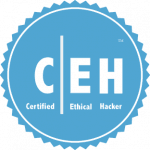Ethical Hacking: What Color is Your Hacker’s Hat?

Your company’s network is bound to be hacked at some point. It’s your choice who’s going to do it—an ethical hacker or a malicious one.
What is Ethical Hacking?
Ethical hackers use the same professional methods as cyber criminals to systematically probe a computer or network for vulnerabilities. The difference is that the legal hackers do it at your direction to improve security for your system, not to exploit its weaknesses.

Certified Ethical Hackers (CEH) are qualified by the International Council of E-Commerce Consultants (EC-Council) to assess the security of computer systems, using penetration test techniques.
Penetration Testing
An ethical hacker uses a penetration test to look for security vulnerabilities. A penetration test is one component of a full security audit and includes:
- Evaluating how susceptible your network is to certain kinds of attack
- Identifying vulnerabilities that may be difficult to detect with automated scanning software
- Assessing the potential impact to your business and operations if a malicious attacker were to succeed
- Testing the network defenders
- Providing evidence to support increased security technology
When is Hacking Considered Ethical?
These are characteristics of a hacker you can trust. The hacker:
- Receives your permission to probe for potential security risks on your behalf
- Respects your company’s privacy
- Closes out their work, not leaving anything open for someone to exploit later
- Reports all the vulnerabilities discovered and suggests ways to fix them
White, Black, or Gray Hats
Ethical hackers are sometimes referred to as white hats because they’re the good guys. Their criminal counterparts are considered black hats because they illegally hack for personal gain or with malicious intent. Gray hats are those who use their legitimate security knowledge in a questionable way.
If you don’t choose to hire a white hat to defend your company, then you are choosing to stay vulnerable to a black hat attack.
Who’s Most Vulnerable?
Companies that have a lot of PII (personally identifiable information), such as financial or legal data, are at greater risk. If your business is banking, law, financial services, or healthcare, then network security should be one of your top priorities.
Your Trusted White Hat
After experiencing the benefits of our network security services, Harford Bank gave us this review:
Be proactive to improve your system’s security through ethical hacking. Contact us to learn more about our full security audit and how we can protect your network. We’re the ones with the white hats.






